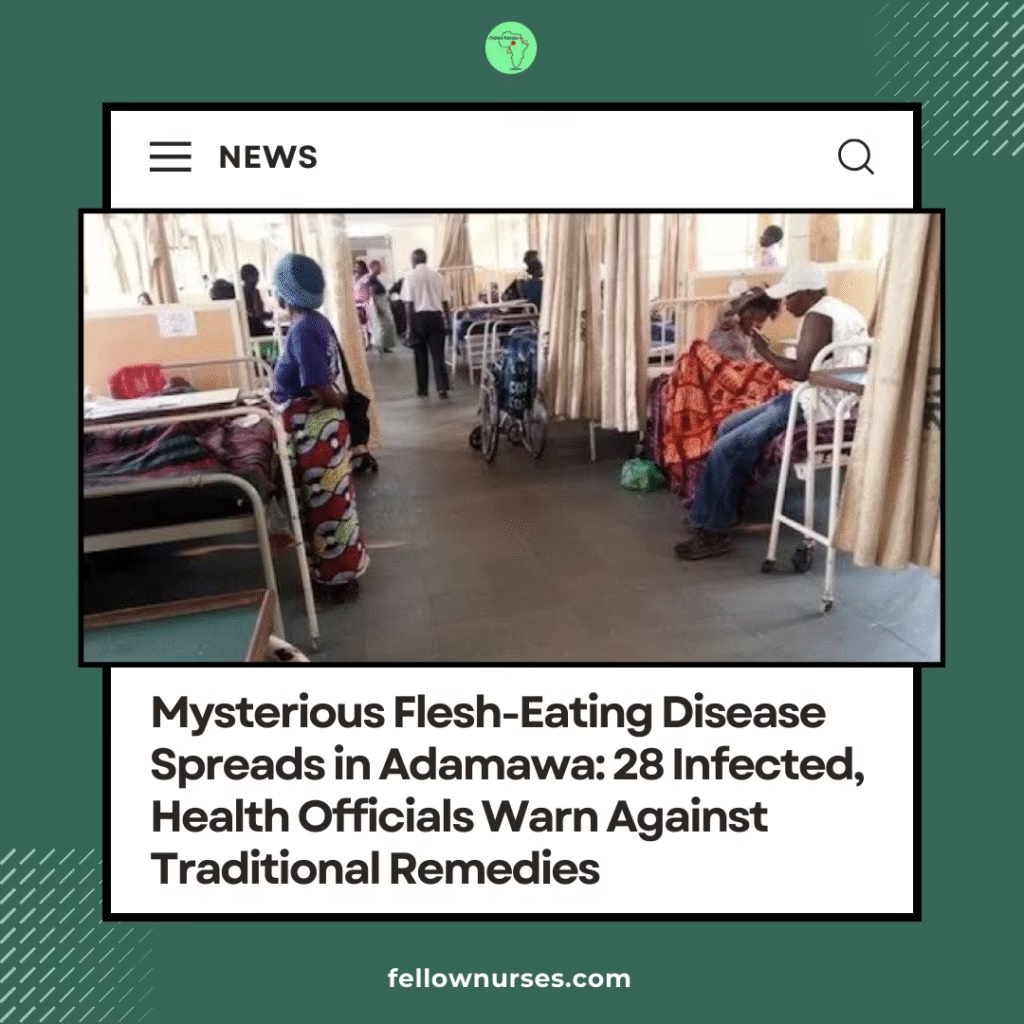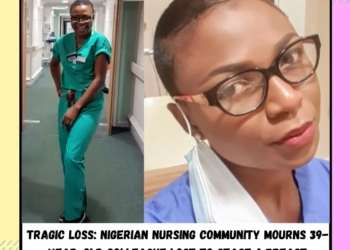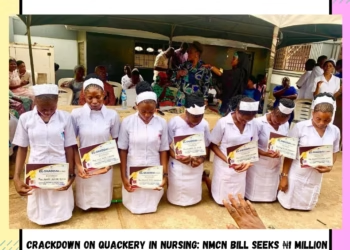A rare and deadly flesh-eating disease has struck Adamawa State, leaving at least 28 people infected and communities in shock. Health authorities confirm that the illness, which begins as a simple boil before spreading aggressively to destroy flesh and bones, is concentrated in Malabu community, Fufore Local Government Area.
Dr. Suleiman Bashir, Chairman of the Adamawa State Primary Healthcare Development Agency, told reporters that patients are receiving treatment at the Modibbo Adama University Teaching Hospital (MAUTH), Yola. Specimens have been sent to the Nigeria Centre for Disease Control (NCDC) in Abuja for histology and further analysis, with results expected within 10 days.
Despite the state government covering all medical costs, only eight of the 28 identified victims have accepted hospital care. Many continue to rely on traditional medicine, a choice experts warn could worsen outcomes and fuel the spread.
“We encourage victims to accept medical treatment rather than rely on traditional remedies,” Dr. Bashir urged.

Harrowing Accounts from Victims
For patients in Malabu, the disease is as terrifying as it is painful.
Mrs. Phibi Sabo described how her ordeal began:
“It started like a boil with pains, later got swollen and burst, then began to eat up the flesh on my leg, damaging the bones and causing serious pain. This has left me with an open wound.”
Another victim, Mr. Junaidu Adamu, revealed he had spent over ₦200,000 on treatment in just two months, without any improvement.
The District Head of Malabu, Aliyu Hammawa, confirmed that more than 30 residents have been affected, with eight currently receiving hospital care while others struggle at local clinics or in their homes.
A Public Health Alarm
The mysterious outbreak raises serious concerns about Nigeria’s preparedness for emerging health threats. Delays in drug access, reliance on traditional remedies, and slow health-seeking behaviours in rural communities make such epidemics harder to contain.
For now, health experts emphasize three urgent steps:
– Rapid laboratory confirmation of the disease by NCDC.
– Community sensitization to encourage early reporting of symptoms.
– Provision of accessible treatment facilities in affected areas.
Until then, families in Adamawa are left battling an unexplained disease that eats away both flesh and trust in Nigeria’s fragile health system.










